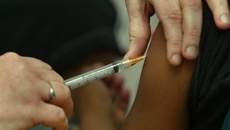
A baby girl who died from a brain infection at Waikato Hospital was delayed possible life-saving treatment due to lack of staff available overnight.
That was one of the findings from a Health and Disability Commission (HDC) investigation which was revealed in a report published today.
The investigation into the tragic death found Waikato District Health Board in breach of the Code of Health and Disability Services Consumers' Rights for the care provided to a new born baby in its neonatal intensive care unit (NICU).
The DHB's failure's included:
• Inadequate staffing levels overnight.
• A lack of critical thinking from DHB staff.
• Delayed antibiotic treatment.
• Delayed brain monitoring for hypoxic ischaemic encephalopathy, which is a brain injury caused by oxygen deprivation to the brain.
• No undertaking of an adequate assessment of the baby and did not document adequate medical records.
The mother - who was in her late teens - gave birth at home at 3.33pm one afternoon in 2017. The baby was "floppy, unresponsive, and blanched" and was rushed to Waikato Hospital's Neonatal Intensive Care Unit (NICU), the report said.
It was later discovered that the baby was born with perinatal hypoxic-ischaemic encephalopathy (HIE) - which is a type of brain dysfunction that occurs when the brain doesn't receive enough oxygen or blood flow for a period of time.
Treatment for HIE was given, but on day four the baby developed neonatal sepsis, which is a bacterial blood stream infection. She subsequently died from the infection the following day at 3.16pm, the HDC report said.
Following the devastating death, the grandmother of the baby filed a compliant to HDC, on behalf of her and her teenage daughter.
Now, after more than two years, the grieving family have been given the outcome of the investigation.
Health and Disability Commissioner Anthony Hill was critical of the of staffing levels overnight in the NICU, and said the DHB staff involved showed a lack of critical thinking.
Hill said there were clinical indications that the baby was becoming septic by 1am on day five, but there was insufficient assessment of the baby, and antibiotics were not commenced until 12pm.
"Waikato DHB staff displayed a concerning lack of critical thinking when [the baby's] condition deteriorated. The failure to recognise the baby's worsening condition meant that antibiotics were not commenced until midday on day 5," Hill said in the report.
As a result of the investigation, Hill recommended that the DHB introduce an education programme for all NICU staff about the signs of possible infection, and about handover and documentation.
He also told the DHB to provide a formal apology to the whānau of the baby.
In the report, the neonatal paediatrician involved in the baby's care said: "I agree that the delay in starting antibiotics was not consistent with good practice, and we will ensure that [the HDC expert's] comments are shared with our medical and resident team in an open education session, for the learning of all.
The DHB said it had made changes to the services it provides, and was in the process of developing further changes, including:
• The introduction of formal writing/documentation of ward round decisions for each baby every day.
• A new standard of documentation, to be included in a Standard Operating Procedure Manual wherein there is a specific expectation that every deviation in clinical care is written up in the clinical records.
• The extension of ward rounds to include considerable additional time for teaching and coaching of junior staff in decision-making.
• Increased resident staff numbers to enable two residents to be present in the NICU on night duty.
Take your Radio, Podcasts and Music with you









